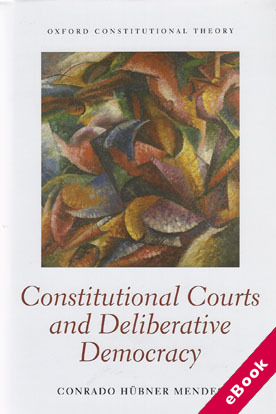
The device(s) you use to access the eBook content must be authorized with an Adobe ID before you download the product otherwise it will fail to register correctly.
For further information see https://www.wildy.com/ebook-formats
Once the order is confirmed an automated e-mail will be sent to you to allow you to download the eBook.
All eBooks are supplied firm sale and cannot be returned. If you believe there is a fault with your eBook then contact us on ebooks@wildy.com and we will help in resolving the issue. This does not affect your statutory rights.
Contemporary democracies have granted an expansive amount of power to unelected judges that sit in constitutional or supreme courts. This power shift has never been easily squared with the institutional backbones through which democracy is popularly supposed to be structured. The best institutional translation of a 'government of the people, by the people and for the people' is usually expressed through elections and electoral representation in parliaments.
Judicial review of legislation has been challenged as bypassing that common sense conception of democratic rule. The alleged 'democratic deficit' behind what courts are legally empowered to do has been met with a variety of justifications in favour of judicial review. One common justification claims that constitutional courts are, in comparison to elected parliaments, much better suited for impartial deliberation and public reason-giving. Fundamental rights would thus be better protected by that insulated mode of decision-making. This justification has remained largely superficial and, sometimes, too easily embraced.
This book analyses the argument that the legitimacy of courts arises from their deliberative capacity. It examines the theory of political deliberation and its implications for institutional design. Against this background, it turns to constitutional review and asks whether an argument can be made in support of judicial power on the basis of deliberative theory.